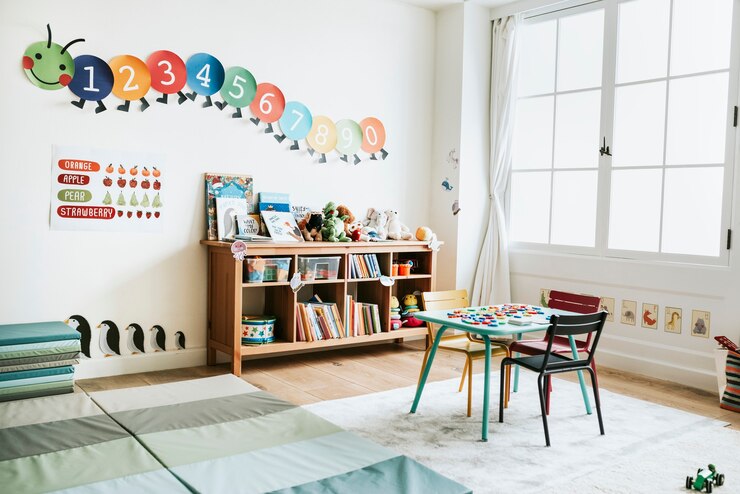Introduction : Preschool Education
Preschool is a critical time for language development, as children are rapidly acquiring vocabulary, grammar, and communication skills. A well-structured preschool program helps young children build a strong foundation for reading, writing, and speaking. In this blog, we’ll explore the ways in which language development is supported in preschool education and why it’s so important.
1. Expanding Vocabulary Through Daily Interactions
Preschool classrooms are designed to immerse children in a language-rich environment.
- Story Time and Reading Activities: Reading aloud is a key component of language development in preschool. Teachers use story time to introduce new vocabulary words and encourage children to think critically about the stories they hear.
- Conversation and Questions: Teachers engage children in conversations throughout the day, asking open-ended questions that encourage children to think and articulate their thoughts. These daily conversations help expand a child’s vocabulary and improve their sentence structure.
2. Developing Listening and Comprehension Skills
Listening skills are an essential part of language development, and preschools focus on strengthening these abilities.
- Following Directions: Simple tasks like following multi-step directions (“Put your toys away and then wash your hands”) help children develop listening comprehension and the ability to process information.
- Songs and Rhymes: Singing songs and reciting nursery rhymes help children develop phonological awareness, a key pre-reading skill. Rhyming and rhythm help children understand the sounds of language, which will support future literacy efforts.
3. Encouraging Verbal Communication and Social Interaction
Preschool provides children with plenty of opportunities to practice speaking and interacting with peers.
- Group Activities: Circle time, group projects, and games encourage children to communicate with each other, fostering verbal interactions that build confidence in speaking.
- Role-Playing and Dramatic Play: When children engage in dramatic play, such as pretending to be a doctor or a chef, they use language in new ways, practicing vocabulary that they might not use in everyday conversations. This also helps them learn social cues and how to engage in conversations with others.
4. Introducing Early Literacy Concepts
Preschool teachers introduce early literacy concepts, helping children get ready for reading and writing in kindergarten.
- Letter Recognition and Sounds: Many preschools incorporate activities that focus on letter recognition and phonics. Children may work with alphabet puzzles, sing songs about letter sounds, or play games that help them identify letters and sounds.
- Writing and Drawing: Although preschoolers are just beginning to write, activities like tracing letters, drawing pictures, and learning how to write their name help build fine motor skills and encourage an interest in writing.
Conclusion
Language development in preschool is an important part of early education, setting the stage for future success in reading, writing, and communication. Through a combination of reading, conversation, and play, children develop the skills they need to become confident communicators. Parents and teachers can support language development by engaging children in rich, meaningful conversations and providing a language-rich environment.


1 thought on “How Language Development is Fostered in Preschool Education”